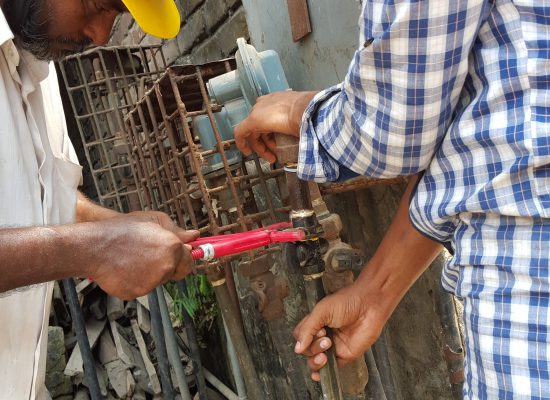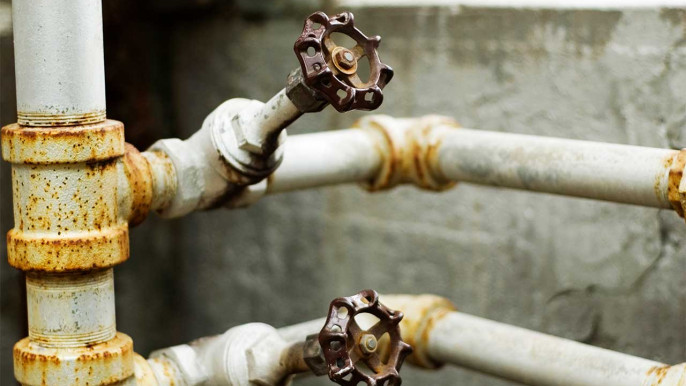Titas Gas Leak Repair Project

Introduction
The Titas Gas Leak Repair project is a landmark initiative in Bangladesh’s journey toward sustainable energy management and climate action. By systematically detecting and repairing leaks throughout the aging Titas gas distribution network—one of the largest in South Asia—this project has dramatically reduced methane emissions, improved public safety, and delivered significant economic and environmental benefits. As a model for urban infrastructure upgrades, Titas Gas Leak Repair highlights the power of targeted interventions in tackling both local and global challenges.
Table of Contents
Background: The Challenge of Aging Infrastructure
Titas Gas Transmission and Distribution PLC, established in 1964, operates a sprawling network of over 13,000 kilometers of underground pipelines supplying gas to more than 2.8 million customers across Greater Dhaka and Mymensingh. Decades of operation, rapid urban growth, and limited maintenance led to widespread leaks, especially in older sections of the network. Methane, the main component of natural gas, is over 25 times more potent than carbon dioxide as a greenhouse gas, making these leaks a critical climate and safety concern.

Project Overview: Leak Detection and Repair (LDAR)
The Titas Gas Leak Repair project introduced advanced Leak Detection and Repair (LDAR) technology and systematic maintenance protocols to address the problem. With support from international partners like NE Climate A/S, the project imported state-of-the-art equipment and trained over 70 technicians and 30 support staff in leak detection and repair best practices. More than 500,000 risers (gas pipeline connectors) were inspected, and over 38,500 leaks were identified and repaired, significantly reducing methane emissions and improving gas availability for consumers.
Climate and Environmental Impact
The environmental impact of the Titas Gas Leak Repair project is profound. By arresting fugitive methane emissions from household and commercial risers, the project has achieved annual greenhouse gas emission reductions of over 3 million tCO₂e. In 2020 alone, Titas Gas prevented the release of over 4 million tonnes of CO₂-equivalent by stopping leaks that would have otherwise gone unnoticed.
This not only contributes to Bangladesh’s climate commitments but also improves local air quality and reduces the risk of gas-related accidents.
Economic and Social Benefits
Beyond environmental gains, the project has delivered considerable economic value. By saving over 20 million cubic feet of gas per day, Titas Gas has improved supply reliability for residential and industrial users, reduced the need for gas rationing, and earned more than $3 million in carbon credit revenues between 2018 and 2023.
These funds have supported further infrastructure improvements and helped keep energy prices stable for millions of Bangladeshis.
Safety Improvements and Public Health
Leaky gas pipelines have been linked to several tragic accidents in Bangladesh, including deadly explosions in Dhaka and Narayanganj. By proactively identifying and repairing leaks, the Titas project has reduced the frequency of such incidents, enhancing safety for both workers and the public. The project’s use of GIS mapping and SCADA (Supervisory Control and Data Acquisition) systems allows for real-time leak detection and rapid response, setting a new standard for urban gas network management.
Modernization and Future Upgrades
Building on the success of the leak repair initiative, Titas Gas has launched a massive modernization project worth over Tk8,000 crore to replace approximately 5,500 kilometers of aging pipelines in Dhaka and Narayanganj. This upgrade, scheduled for completion by 2030, will further reduce emissions, improve gas supply capacity, and enhance safety for over 2.5 million customers.
The integration of GIS and SCADA technologies will enable continuous monitoring and swift intervention, ensuring the long-term resilience of the network.
Carbon Credits and International Recognition
The Titas Gas Leak Repair project was initially registered under the Clean Development Mechanism (CDM) and later transferred to the Verra registry, where it continues to generate high-quality carbon credits.
These credits are independently verified, providing assurance to buyers and supporting Bangladesh’s participation in global carbon markets.
Conclusion
The Titas Gas Leak Repair project is a shining example of how targeted infrastructure upgrades can deliver climate, economic, and social benefits at scale. By cutting methane emissions, improving energy reliability, and modernizing critical urban infrastructure, Titas Gas is helping to build a safer, cleaner, and more sustainable future for Bangladesh.
Verified Project: This project is registered under the Clean Development Mechanism (CDM). See official details here: https://cdm.unfccc.int/Projects/projsearch.html
Local Benefit: In addition to reducing methane emissions, the repairs have improved gas supply reliability for thousands of households in Bangladesh.
Author’s Note: Coffset verifies through third parties that each tonne of CO₂e reduced by this project is accounted for and retired on your behalf.
Take action today, calculate your emissions using Coffset’s carbon footprint calculator and contribute to projects that make a real difference!
References:
https://rubiconcarbon.com/customer-stories/the-titas-gas-leakage-reduction-project/
https://www.bp.com/en_gb/carbon-connect/home/our-carbon-credit-portfolio/our-current-portfolio/titas-gas-methane-leak-reduction.html
https://thefinancialexpress.com.bd/economy/titas-plugs-leaks-earns-3m-amid-slumping-carbon-market
https://www.dhakatribune.com/bangladesh/381546/titas-launches-8-000c-project-to-replace-ageing
https://www.psldhaka.net/reducing-gas-leakages-within-the-titas-gas-distribution-network-in-bangladesh/